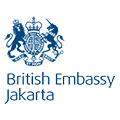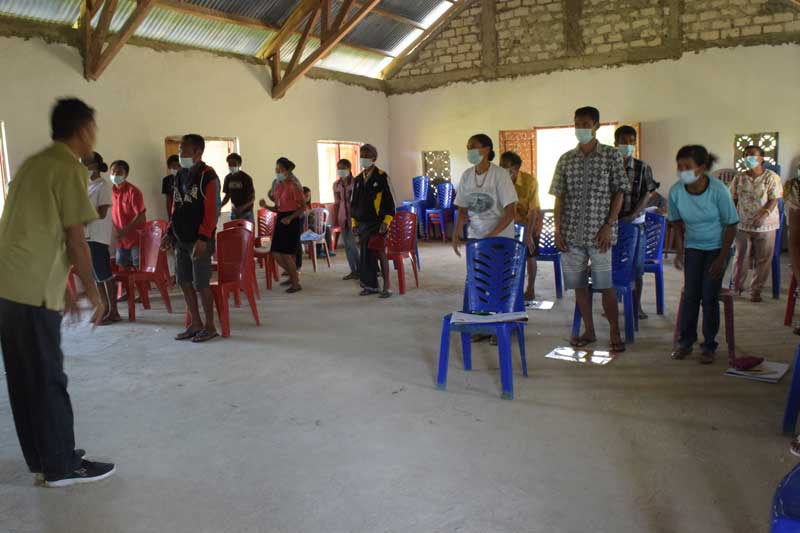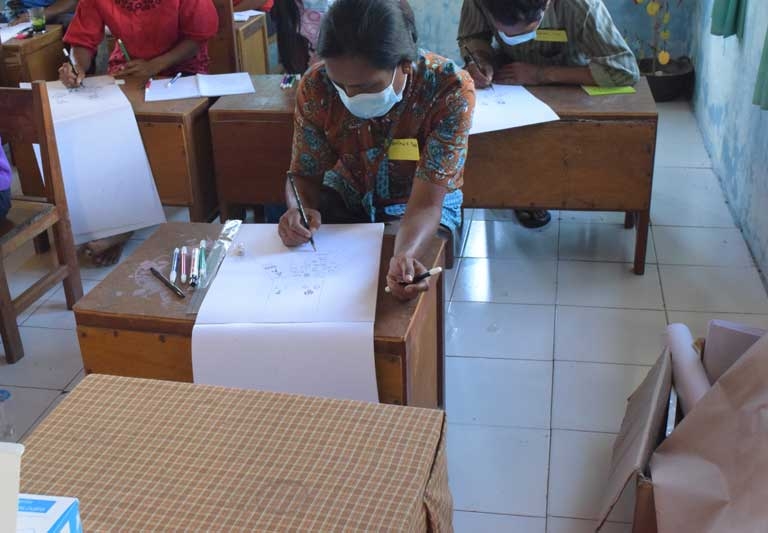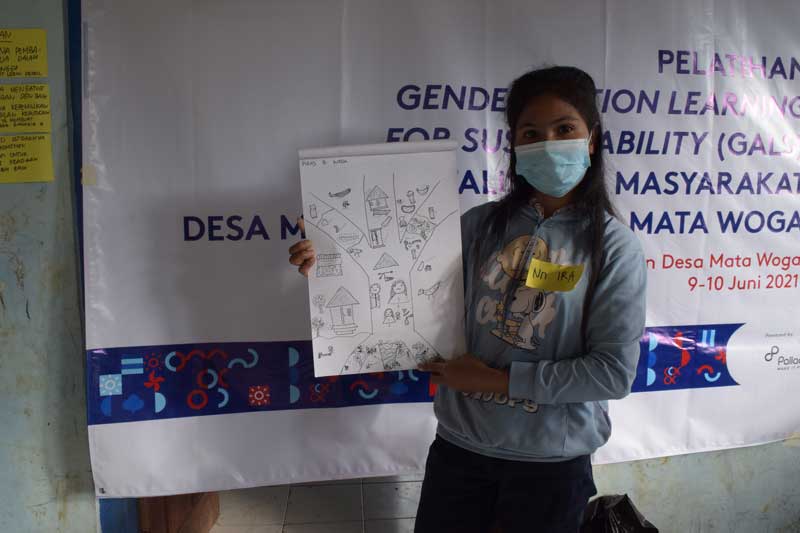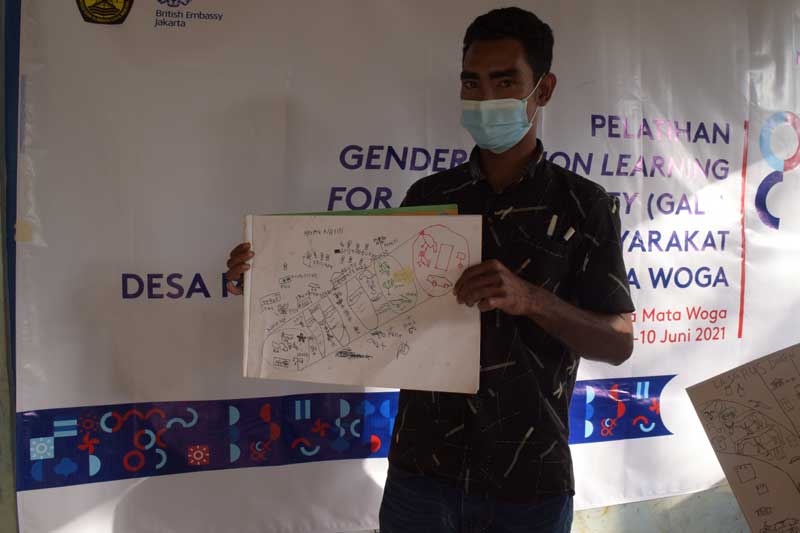It was not easy for the Gender Action Learning for Sustainability (GALS) catalyst training facilitator, Trouce Landukara, known as Mama Oce, to start a discussion on a sensitive topic with ten married couples from a sub-village in Mata Redi, East Nusa Tenggara province: “To ensure that no one was offended and that the discussions were smooth and transparent, I started with the question, ‘Ladies and gentlemen, who does most of the housework?’ The husbands simultaneously answered, ‘Mama!’ and the wives shouted ‘Me!’ They all laughed and using this ice breaker, I was quite comfortable to discuss the issue further.”
MENTARI conducted the GALS training in the villages of Mata Redi and Mata Woga in June 2021 as part of its community strengthening activities before the new solar PV power plant was constructed. GALS is a community-led empowerment method that promotes harmonious and violence-free relationships in families and communities. The method ensures that women and other marginalized groups have the same access, control, benefits and opportunities to participate throughout the MENTARI project. The project aims to not only build infrastructure but to strengthen communities and improve the quality of lives of the people.
Mama Oce’s question was an effective discussion starter because, while it took a gender perspective and focused on women’s reproductive and productive roles in the household, it also created a pleasant and conducive atmosphere, and she could go on to use the ‘Happy family tree’ and ‘Dream journey’ methods to explore the issues further.
In the ‘Happy family tree’ session, Mama Oce invited participants to discuss the relations between husband and wife. They talked about sharing domestic roles in the family, managing finances, making decisions and managing family assets. The focus was on increasing women’s opportunities in terms of access, control, participation, ownership and decision making.
The ’Dream journey’ exercise equipped participants to make optimal use of the electricity that will be available to improve the economy of the community and their quality of life. During the discussion, the women said they dreamed about being able to weave at night or help their children study at home with good lighting when the solar PV power plant starts operating in their villages. Some participants wanted to increase productivity in the furniture or candlenut businesses. These dreams were ultimately about being able to fund their children’s education up to university level and have a permanent and sound house, and a vehicle.
“The training method is interactive, using drawing as a medium for discussion. For example, for the happy family tree exercise, participants were asked to look at their spouses’ drawings, so they were aware of who does most of the household chores, who makes most of the decisions or who has the most control over family assets. Everyone can see from the pictures they make themselves about the ‘inequalities’ at home,” added Rita Kefi, MENTARI’s gender equality and social inclusion field officer.
Another training facilitator, Ariyanto Umbu Kudu, explained that he asked couples to discuss and to compromise using the ‘Happy family tree’ method to achieve more balance. The couples then agreed on the results and committed to implementing the new arrangements at home jointly.
“From the pictures they drew, the male participants realized that the women have a larger workload at home. Some also promised that they would no longer object to doing domestic work to ease the burden on their wives, for example, by fetching water, cutting firewood, washing clothes, caring for children or pounding rice and corn. The couples also jointly agreed to reduce non-essential expenses, such as buying cigarettes and liquor, to limit clothes and jewelry purchases, and not to gamble – and also to make decisions together in all cases,” he explained.
One training facilitator, Franky Landukara, observed that while the participants finally agreed on the need for equal roles, this did not extend to equal ownership of the family assets. However, he thought this was a reflection of the local customs rather than of their personal attitudes.
Participants developed outcome and follow-up plans during the GALS sessions and they will discuss these in the second phase of the training that will involve representatives from village government.

